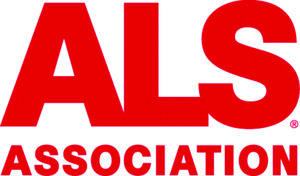WASHINGTON, May 10, 2016 /PRNewswire-USNewswire/ -- Today, The ALS Association joined Congressman Leonard Lance (R-NJ), sponsor of the Dormant Therapies Act, along with ALS advocates and representatives from the National Health Council, for a Capitol Hill press conference to urge Congress to enact the Dormant Therapies Act. The legislation would facilitate and incentivize the development of treatments for diseases like ALS with unmet medical needs and for which effective treatments do not exist. The legislation also is one of several key recommendations from an upcoming Lewin Group report, "New Therapies for Amyotrophic Lateral Sclerosis: Challenges and Next Steps."
ALS is a progressive neurodegenerative disease that affects nerve cells in the brain and the spinal cord. Eventually, people with ALS lose the ability to initiate and control muscle movement, which often leads to total paralysis and death within two to five years of diagnosis. For unknown reasons, veterans are twice as likely to develop ALS as the general population. There is no cure, and only one drug.
The press conference occurred as nearly 1,000 ALS advocates from across the U.S. met with their elected officials in Congress as part of The Association's National ALS Advocacy Day and Public Policy Conference. Speakers included ALS advocate, Nirali Shah, who is from Basking Ridge New Jersey. Ms. Shah lost her mother, Sonal Shah, to the disease in November 2015 after a three year fight.
Ms. Shah shared memories of her mother who was a passionate advocate who had helped build support for the Dormant Therapies Act during her trips to Washington for ALS Advocacy Day. Shah noted the importance of continuing her mother's fight, saying, "Although our loved ones may not be physically with us, their legacies and dreams live within each one of us. We can take our time to mourn, cry, and celebrate their lives, but I am sure they would want us to take action. We must keep their momentum and legacy alive."
Currently, promising treatments for ALS are not being developed because they have lost patent protection or have weak patents. Without patent protection, there is no incentive for a treatment to be developed, no matter how promising. The Dormant Therapies Act would address this challenge by creating a new class of drugs called Dormant Therapies, which are treatments that show promise for treating diseases with unmet medical need and which do not have patent protection or have weak patents. The legislation would provide 15 years of data exclusivity for dormant therapies and sponsors that pursue dormant therapies would have to waive all patent rights.
Chris Brussalis, Public Policy Committee Chair for The ALS Association Board of Trustees, noted the critical need for the Dormant Therapies Act: "Today, there are thousands of potential treatments for ALS that are sitting on lab shelves collecting dust simply because they have lost patent protection. The Dormant Therapies Act would take those treatments off the shelf, bring more treatments into the drug development pipeline and ultimately deliver them to patients. In short, the Dormant Therapies Act would help us put more shots on goal. And the more shots we take, the better chance we have of scoring and finding a treatment for ALS."
Congressman Lance, who has met with constituents with ALS to discuss the challenges they face and how they cope with the horrors of this disease, spoke of the urgent need to bring new therapies to people with ALS as fast as possible. "We need a new way. Right now, there is no treatment available that significantly slows or stops the progression of the disease. That needs to change. We need to do all that we can to speed the development of new treatments for ALS and other diseases and we need to do it now," said Congressman Lance. "It is for that reason I championed the Dormant Therapies Act, to break down barriers that exist to ALS drug development."
In addition to enacting the Dormant Therapies Act, the initial recommendations from the Lewin Group report include the creation of patient-led guidance for ALS drug development to speed ALS drug development. With funding made possible through the 2014 ALS Ice Bucket Challenge, this guidance is well underway and is currently out for public comment and will be shared with the U.S. Food and Drug Administration (FDA) in June, 2016. The guidance is a community wide effort that has involved the participation of nearly 40 people with ALS, 10 different ALS organizations, 45 of the world's leading clinicians and researchers, 15 industry leaders from 9 different pharmaceutical companies and representatives from the National Institutes of Health and Centers for Disease Control and Prevention.
About The ALS Association
The ALS Association is the only national non-profit organization fighting Lou Gehrig's Disease on every front. By leading the way in global research, providing assistance for people with ALS through a nationwide network of chapters, coordinating multidisciplinary care through certified clinical care centers and fostering government partnerships, The Association builds hope and enhances quality of life while aggressively searching for new treatments and a cure. For more information about The ALS Association, visit our website at www.alsa.org.
Logo - http://photos.prnewswire.com/prnh/20131211/MM32178LOGO
SOURCE The ALS Association
Related Links
WANT YOUR COMPANY'S NEWS FEATURED ON PRNEWSWIRE.COM?
Newsrooms &
Influencers
Digital Media
Outlets
Journalists
Opted In





Share this article